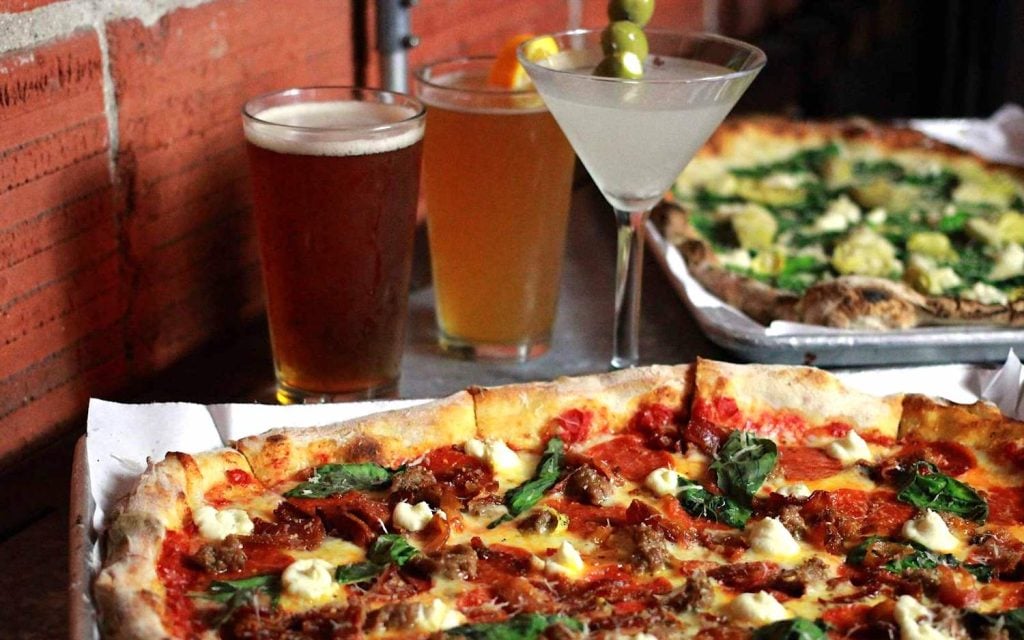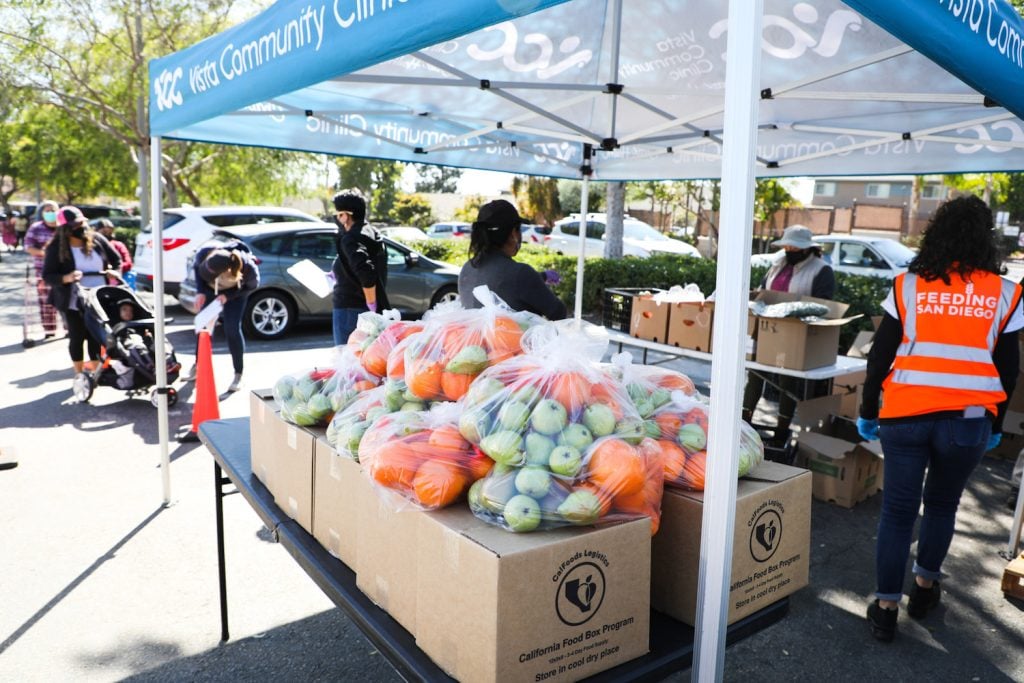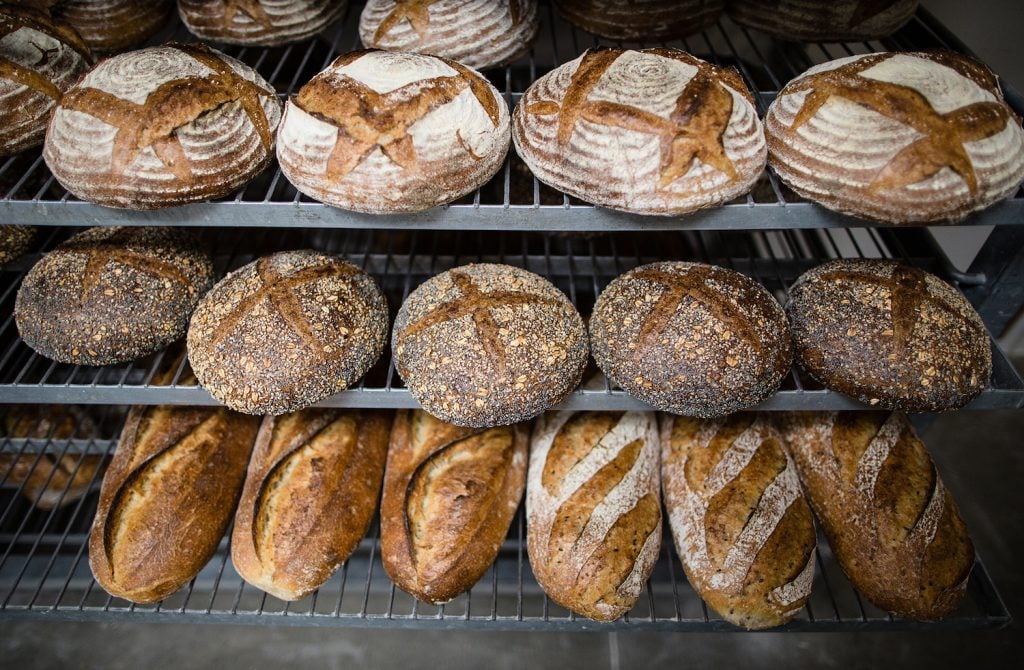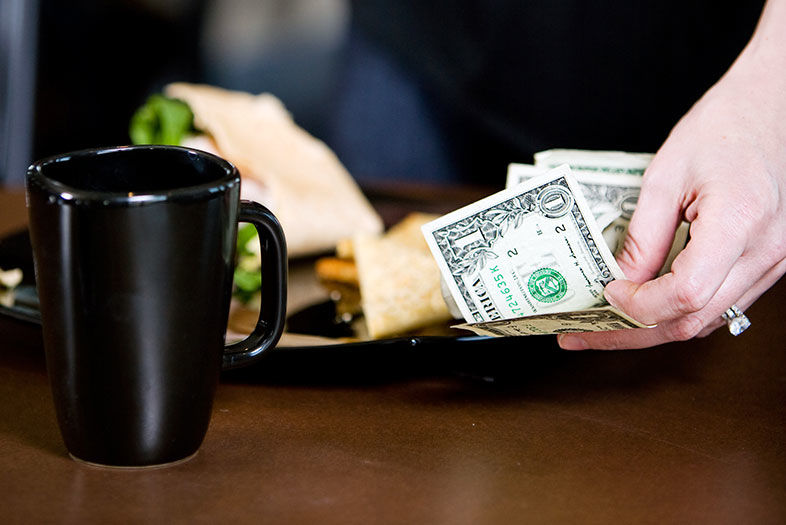Yesterday I ran an obit for Cafe Chloe. The East Village bistro is closing after 14 years, mostly because of California’s refusal to endorse a “tip credit.”
They won’t be the last. More mom and pop restaurants will close unless California comes to its senses.
Restaurants are not trying to get out of paying their employees minimum wage. It isn’t about that at all. Every employee should make minimum wage. This is about small, local restaurant owners saying to the state of California, “My server already makes $20/$30/$40 an hour. Will you please not force me to give them a raise? Can I give that raise to a dishwasher or cook instead?”
California has responded: Too bad.
I wish tips didn’t exist for philosophical reasons based on sexism, racism, classism. But that’s an ideal situation FAR down the road in the U.S. (unlike Europe where no-tipping is the norm, Americans are far too accustomed to cheap food, which restaurants are able to give to them because tips subsidize employee wages). And unfortunately mom and pops are dying on the current road. So as long as tips do exist, let’s address the current problem that’s putting restaurant owners and employees out of business.
The concept of “tip credit” is pretty simple. It means a state recognizes tips as income/payment/wages that a restaurant owner is providing their tipped employees. Currently, California is refusing to. Let’s say a restaurant server makes $31 an hour (minimum wage at $11, plus $20 an hour in tips). California is saying to the owner of that restaurant, “Those tips do not exist. We are still going to tax you on them, but you can’t count them as payment to that employee. You must pay them an extra $4/hour come January 2022.”
So the server will be making $35/hour. Meanwhile, the hard working kitchen staff (dishwashers/cooks) is struggling near minimum wage, small restaurateurs are struggling to pay bills, restaurants are closing, would-be restaurateurs are moving to states who do count tips as income (43 of 50 U.S. states do), and jobs are being lost or simply not created at all.
The state of California has botched this up. The fix seems pretty simple, but the state refuses to do anything about it.
The worst part is that California’s refusal to recognize tips as income/payment/wages specifically hurts small restaurant owners the most. Cheesecake Factory will be just fine. Corporations and chains have the financial largesse to shoulder the cost. Indie restaurants do not. The state is killing mom and pop restaurants. They’re killing small business owners like Cafe Chloe, whose owners spent years rejuvenating a struggling neighborhood, employing hundreds of locals along the way.
Minimum wage is currently $11/hour in California, rising incrementally each year until it reaches $15/hour in January, 2022.
As I’ve said in the past, I’m not against raising minimum wage. I want Californians to earn a living wage. I’m against the state’s amazingly unfair, if not criminal, refusal to count tips as payment/income/wages restaurants are providing for their employees. I simply want California to look at a pile of real money—tips given to our California restaurant workers—and recognize it as real money. Because it is.
A more sane solution would include these three ideas:
- Make sure tipped employees are paid well. I want servers to continue making money. How much is fair? $20/hour? $30? $40? $50? The market will decide. Servers at high-end restaurants, who routinely go home with a couple hundred dollars in tips after a busy shift, probably won’t need a raise in minimum wage. We can allocate that money to someone who does (a dishwasher, a cook). A server at a place like IHOP will probably need minimum wage help. Great, let’s help them.
- Better Pay for Kitchen/Non-Tipped Staff. There’s a gross wealth gap among tipped and non-tipped restaurant employees. Dishwashers and cooks get the shaft, as do their families. Recognizing tips as payment/income/wages would let a restaurateur say to a server, “Hey, you’re making $30 an hour. John in the kitchen is making $11. Mind if I give him a raise and not you, because you seem to be doing pretty well.” Under current law, California is saying it’s illegal to do that.
- Make Sure Restaurant Owners Can Survive. There’s an odd misconception that restaurant owners all leave dinner service early to drive their Porsches to their Champagne parties, while their underpaid workers trudge away. After two decades in this industry (as a dishwasher/busser/server/bartender, then a restaurant writer), I am certain that is not the case in a vast majority of restaurants. Sure, there are the Danny Meyers and Nobus of the world. But they are rarities/celebrities/outliers. Most small restaurant owners I know work ungodly hours long after their staff has gone home. The economic return for their risk and struggle? It’s 6.1 percent, the average profit margin for full-service restaurants. That is not a get-rich-quick percentage. I know plenty of owners whose waitstaff earn a larger annual income than they do. A vast majority of restaurant owners are people like Jon Clute and Alison McGrath, who just had to shut down the much-loved Cafe Chloe because they weren’t making money. Let’s stop villainizing these small business owners, and take a real, fact-based look at what they need to stay in business/employ people/feed their families, too.
A successful restaurateur once told me, “We WANT our employees to make above minimum wage! My servers already make way, way more than minimum. I’ll make sure my employees make $20 an hour. California just needs to let us include tips as wages, because they are.”
Most successful restaurateurs are so because they treat their people well. They’re ethical. And most restaurateurs I know say they want to pay their employees more than minimum wage. Often much more, if the money is there. If they fail to pay their quality staff properly, a competitor will.
The criminal part is that California has told restaurateurs, “You can’t count tips as payment to your employees, but we are going to TAX YOU on those tips.” In what insane world is it ok to say to a small business, “We’re going to tax you on this money your employees are getting, but we’re not going to count this as money your employees are getting…”?
That’s an impressive, David Copperfield-level mind trick.
A high-end San Diego restaurateur told me one of his servers made $70,000 three years ago, working 30 hours a week. That is $44.87/hour. Come 2022, California will force the restaurateur to pay that server $4/hour more. He will nearly be making $50/hour. Granted, this wealthy server is an outlier. Plenty of servers at low-end restaurants are making less than minimum wage in tips. But, even as a server at California Pizza Kitchen in Carmel Mountain during the 90s—a nice chain, but no Mister A’s—I made more than minimum wage in tips.
If California had a tip credit, the restaurateur would not be required to give his $44/hour employee a raise. I’m not going to say that employee doesn’t deserve it. He’s apparently a great server, at a great restaurant, and the market deems he’s worth a lot to the business. Good for him. But before California forces the restaurateur pay the server four bucks an hour on top of his $44, why don’t we take a look at the other people working hard at the restaurant.
You know who really needs a raise? The kitchen staff and dishwashers, who do not earn tips (until this year, it was actually illegal in California for servers to share their tips with kitchen staff). The restaurant industry already has a grossly unbalanced distribution of wealth. Tipped servers make double or triple what a cook or dishwasher makes. By refusing to use a tip credit, California is widening that wealth gap. They are forcing restaurateurs to throw more money at their highest-paid employees—most of whom make well over minimum wage—at the cost of their lowest paid people.
The result? Many restaurateurs have told me they are hiring fewer servers, or getting rid of them altogether. They are going toward a counter-service model. A takeout model. A fewer-humans model. Which is sad, because restaurant tips have helped locals pay for school, helped single moms feed kids, helped build a middle class. One of San Diego’s top chefs tried to make the numbers work for a new restaurant here in town, but couldn’t because California doesn’t recognize tips as income. He moved his family to Colorado, which has a tip credit. And highly loved mom and pops like Cafe Chloe are closing, umemploying dozens of people and creating holes in neighborhoods.
So by trying to get servers paid more, California is hurting them. They are literally destroying their jobs, and the jobs of their coworkers. If I were a server, I’d do some reading into the experiences of servers in other states. Take a look at the servers in Maine, who recently fought to KEEP their tip credit, because they’d rather have a lower hourly rate, while keeping their tips and their jobs. New York servers are banding together to do the same thing. By simultaneously raising minimum wage and refusing to recognize tips as wages/payment/income, California has made it so that small restaurateurs cannot afford this industry. As a result, well-paid servers will lose their jobs this week when Chloe shuts down. More will be lost.
Maybe a new chain restaurant will have job openings for servers. Which is nice.
The state has reasons for not using a tip credit. Mostly, because a few unscrupulous owners have used it to cheat employees out of tips. But are a few bad apples really a reason to throw out sane legislation? Do we outlaw candlesticks because Mr. Plum used one to kill a man in the study?
This is not complex math. It is bone simple, and I’m not good at math. I can’t understand why we can’t simply do the following:
At the end of a shift, tally up an employees’ tips. This is pretty easy, since nearly all of Americans now pay with credit or bank cards. If they earned minimum wage (or set it at $20, even!), then California shouldn’t force the restaurant to pay them more. If the employee made less than minimum wage, the restaurant would be required to make up the difference. If owners want to attract the best talent, they can even go above minimum wage to $18 or $20 or $40 an hour!
Is that really such a hard process that our government officials can’t figure out a way to make it work? To be fair, this past March California legalized tip pooling, which may help shrink, a tiny bit, the economic disparities of the restaurant staff. But it doesn’t go far enough. It’s a band-aid.
Tip credits may not be the ideal solution. But instead of working with restaurateurs to come up with a better solution—one that promotes economic growth, is fair to both restaurant employees and the small business owners whose livelihoods and credit are on the line—California essentially looked at small restaurant owners, flipped them the bird, and said, “Deal with it.”
We’re starting to see the fallout. Cafe Chloe’s employees are now unemployed. Their farmers and winemakers and suppliers have lost a consistent source of monthly income. A revitalized corner of East Village will now de-vitalize. San Diego lost one of the best bistros in the city, not to mention a piece of its soul.
Again, the saddest part is that California’s refusal to recognize tips as income/wages/payment won’t cripple big restaurant corporations and chains, who have the financial largesse to shoulder the cost. Olive Garden will be just fine. It will kill the mom and pops. It’ll kill the Chloes.
Stop killing Chloes, California.
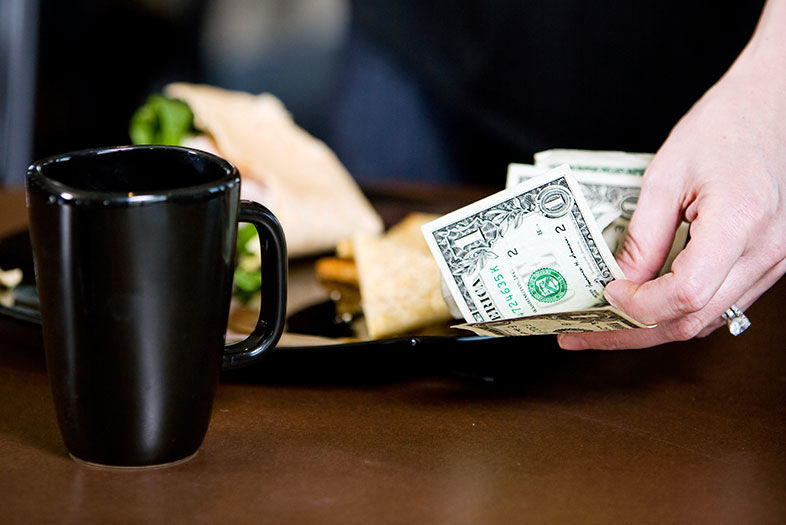
Stop Killing Chloes


